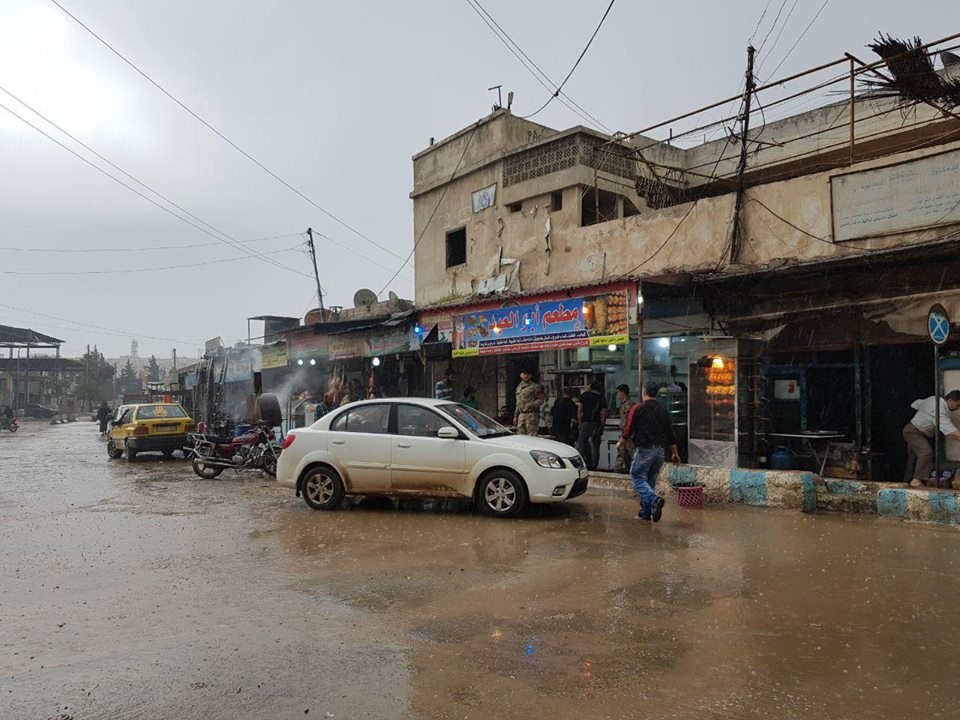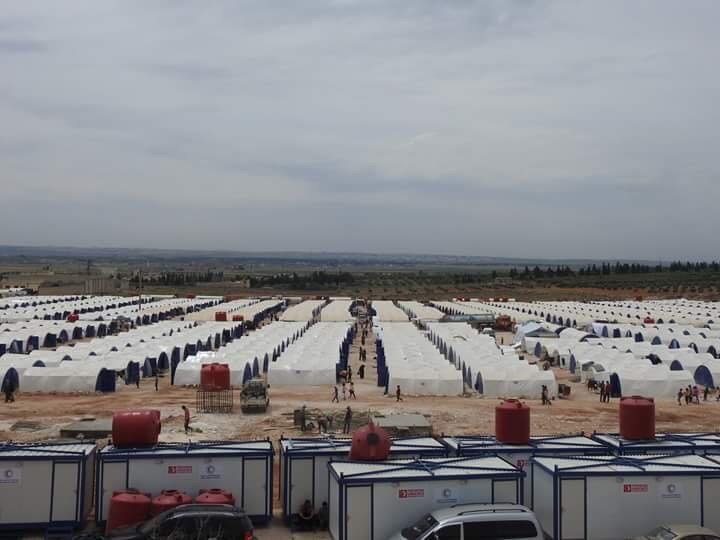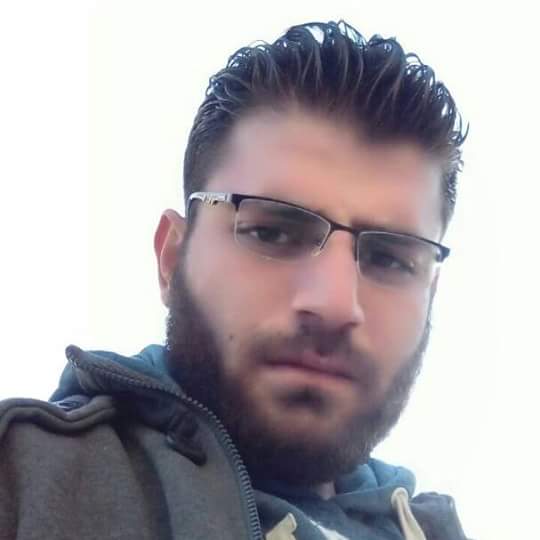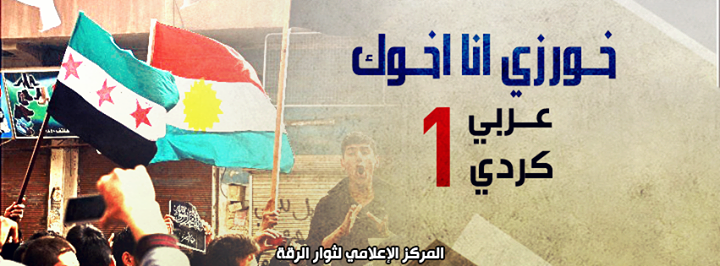(Aleppo) Turkey and the Arab factions it supports in northern Syria are widely accused of launching a wide-scale operation of demographic change to flush out Kurdish people from areas considered of strategic interest to Ankara.
These accusations have gained momentum since the conclusion of Operation Olive Branch, which began January 20, 2018 and ended March 18, when Turkish forces and their allied Syrian armed opposition factions took control of the northern district of Afrin and expelled Kurdish militias seeking a measure of autonomy within Syria.
The new rulers of Afrin—where Kurds were in the majority prior to the operation—have reportedly encouraged Arabs to settle in the area while forcibly displacing Kurdish citizens and blocking their return.
Accusations of systematic demographic change
Journalist Jihad Koro says that Arabs in the district of Afrin now account for 60% of the population currently and that 95% of citizens in the subdistrict of Jandairis are Arabs. The figures vary between the other villages and areas within this range, compared to a 7% Arab presence in the past.
Koro noted that Afrin is made up of seven sub-districts—Sharran, Shaykh al-Hadid, Rajo, Jandairis, Bulbul, Afrin and Maabatli— and 66 villages. Arabs live in 10 villages in the eastern side near Azaz and account for 7% of citizens. Turkmen reside in two villages also in eastern Afrin and account for 1% at most. Hundreds of Arnauts [having Albanian origins] and Assyrians are distributed over the villages, while Christians account for 2000 people, most of whom are Turks from Afrin. Yazidis constitute the largest population in the area, after Sunni Kurds.
Eastern Ghouta citizens moved to Afrin
“The Turkish forces moved more than 50 families from Eastern Ghouta to Jandairis in the west of Afrin, and helped 15 other families settle in Qatma village in the east of Afrin on April 22, 2018,” Rami Abdul Rahman, director of the Britain-based Syrian Observatory for Human Rights, told SyriaUntold.
“The Turkish authorities brought armed Eastern Ghouta family members to Meidan Ekbes and Mosaka towns in Rajo, and to Korna in Bulbul and Pasovani in Shirava. The families of armed Turkmen from Azaz were moved there,” added Abdul Rahman, whose organization focuses on documenting rights violations by the Syrian regime and armed groups, drawing on a strong network of sources within Syria, especially in opposition-held areas.

Abdul Rahman said that more than 120,000 people were forcibly displaced to northern Syria, and most of them settled in Afrin and its countryside. Around 68,700 people from Eastern Ghouta, 6,240 people from Eastern Qalamoun, more than 9270 from the southern neighborhoods of Damascus as well as more than 34,500 people from Homs northern countryside and Hama southern countryside arrived to the Syrian north, specifically Jandairis in Afrin.
Abdul Rahman asserted that the Turkish forces and members of armed factions on military checkpoints across the city are rather easy-going. They facilitate the entry to and exit from the city of displaced Syrians, in general, and of Eastern Ghouta citizens, in particular. The local council and civil figures are offering many services and facilities to the displaced, unlike previous local authorities, giving them a a sense of stability, he said.
Mohammad Dahbour (28) who lives in Eastern Ghouta told SyriaUntold that he has been living in Afrin since end of March and that he can move easily between the checkpoints on the roads connecting the city center to the neighboring villages.
“Most Eastern Ghouta citizens move between villages and cross the military checkpoints without showing official papers, while any other citizen or armed faction member is not allowed to cross without such papers issued by the local council and security committee in Afrin,” Mohammad added.
A citizen from Zamalka called Hassan Tohme (32) told SyriaUntold that the vehicle that was transporting them to northern Syria left them in Idlib and that he headed to Afrin a few days later and entered without any hassle or complication.

“I passed nine armed factions’ checkpoints and a Turkish forces’ checkpoint since I left Atme in Idlib’s northern countryside until I reached Afrin, without being asked for an entry permit or proof of identity,” Tohme said.
“It is enough to speak the Damascene accent and say that you are from Eastern Ghouta, and you are on your way, unobstructed,” he added.
Abdul Aziz al-Sheikh (35) from Eastern Qalamoun said that relief organizations (led by Turkey's AFAD) have established a huge camp in Deir Ballout near Jandairis. He noted that he headed to Afrin to seek better housing and said that the military factions allowed him to open an unoccupied house and settle there for free. He added that he got an apartment in the villa street in the city center and moved there with his family.
“I faced some difficulties and struggled with the control on checkpoints while entering the city, but it always ended with reaching an understanding with the Turkish soldiers. When Turks talk, everybody obeys,” Sheikh continued.
Abu al-Nasr (pseudonym, 46) who hails from Western Ghouta was displaced and moved to Idlib at the end of 2016. He told SyriaUntold that he resettled in Afrin after the opposition forces took control due to the deteriorating security situation in Idlib and lack of jobs. He met with a military officer in the area and asked him for a number of houses so he could move in with his relatives and their respective families. He asserted that he was assigned 12 houses for free in a small village near Bulbul.
Abu Al-Nasr noted that this officer whose identity remains anonymous gave them a generator and water tanker and a large quantity of mazout [low-quality fuel] to supply electricity and water to the village until the networks are fixed and reactivated.
Rasha Obeid (30) from Saqba city who was displaced to Afrin refused to live in a house that was taken away from its owners. So, she stayed at a home used by her relatives for four days until she could find a house to rent directly from its original owner.
“We do not know the house owners or their motivations," she said. "I will not allow myself to take a house whose owners fled to escape danger. I will not give anyone the chance to curse my kids, like I curse those who took my house in Damascus just to save some money.”
Blocking the return of Afrin citizens
Several activists and rights defenders mentioned that the opposition factions are still banning civilians from returning to their native towns and villages in Afrin, amid ongoing violations and discrimination against the townsfolk.
A human rights activists who is a native and resident of Afrin told SyriaUntold that opposition factions forbade the citizens of Shia areas and the Afrin villages of Karmilik, Anafli, Kafr Safra and Marani from returning home. The displaced of Afrin continue to struggle with housing and are often stranded and displaced.
The source, who spoke on condition of anonymity due to security concerns, stated that more than 170,000 civilians from Afrin could not return home despite repeated attempts.

Khalaf al-Dosh (37) who was displaced from Afrin in February 2018 told SyriaUntold over the phone that he was held with his family on Kimar checkpoint that Turkish forces control on the road between Shirawa and Afrin city for six days. He added that he still lives in Shirawa in north Afrin and cannot enter the city despite repeated attempts with the checkpoint officers.
“Each time, the Turkish forces promised to open the road to all citizens as soon as the mine removal ends in the city, but the truth was that the inhabitants of Rif Dimashq were squatting in our houses,” Dosh added.
Darm Ahmad (41) who was displaced from Rajo area to Manbij city controlled by the Kurdish People’s Protection Units (YPG) reported that he fled from the shelling and battles in his village and reached the outskirts of the area after struggling at the Kurdistan Workers’ Party (PKK) checkpoints. The party forbids citizens from returning to their villages that slipped from the PKK’s control after Operation Olive Branch. But, the Turkish forces on the main entrance checkpoint forbade Ahmad from going in. He is still stranded with dozens of families and can neither enter nor return.
Yaqine Sleiman (36), a Kurdish woman who lives in Jandairis in the west of Afrin, told SyriaUntold that she has been living alone for four months. Her only son left to regime-controlled Nubl to assist his father who was going medical treatment at a particularly tense time in the city.
Sleiman said that her husband died in April in Nubl where he was also buried because the opposition forces forbade them from taking the body for burial in his hometown.
“I still haven’t found a way to obtain a return permit for my son who is stuck outside the city, although I checked with the local council and the security committee repeatedly. I cannot go there myself, because if I leave the house, I will not find it and its contents upon my return,” she said.
Spokesperson for Al-Rahman Legion Wael Alwan stated that their command communicated with the Turkish forces and the Euphrates Shield Forces and asked them to allow its fighters and their families who left Eastern Ghouta to settle in Afrin. He argued that Afrin is not as overcrowded as Idlib which welcomed thousands of displaced from Eastern Ghouta.
Afrin city is considered the link between the armed opposition-held areas in northern Aleppo and those in Idlib. Therefore, the Turkish-backed factions’ control of these areas links all border towns between Jarablus in the west of the Euphrates and the Mediterranean Sea geographically.
By taking Afrin, Turkey prevented Kurds from controlling geographically contiguous areas and and got rid of PKK militias and the Democratic Union Party (PYD), which it considers terrorist groups threatening its national security.
Turkey accused of promoting demographic change
Kurdish and Arab sources from the area accuse the Turkish authorities of working systematically to change the demography in Afrin and its countryside, eliminating all Kurdish landmarks and passing the torch to Arabs and Turkmen.
“Turkish authorities do not want Kurdish influence near their borders because it threatens the unity of their lands," Koro, the journalist, told SyriaUntold.
"This is why they tried to displace the citizens of Afrin and its countryside to accommodate Arab Syrians instead," he added. "Turkey has also eliminated Kurdish landmarks by destroying Kawa al-Haddad statue, for instance, and banning Kurdish education in city schools. The Turkish authorities removed all Kurdish writings from the display of shops and from road banners where Arab and Kurdish would usually appear and replaced Kurdish with Turkish.”
Koro believes that Turkey has been trying for years to gather an Arab community on its borders with Syria and Iraq to prevent the unity of the Iraqi Kurdistan Region, Syria and Turkey. To achieve its plan, Turkey used the opposition factions to which if offered support.
The National Kurdish Council issued a statement April 2 and called on the international community and the countries concerned with Syrian affairs to face the demographic change process and to pressure the Turkish government to ensure the safe return of the displaced home; to expel the militants from cities and villages; and to form civil administrations comprising of locals to manage daily tasks. The council also called on the displaced to return to their villages, stand their ground and resist all attempts targeting their existence.

Thaer al-Najjar, a rights activist hailing from the northwestern town of Azaz which is near to Afrin, denied to SyriaUntold any demographic change attempts from the opposition factions or Turkey.
He said that the Kurdish self-rule areas accommodate Arabs and Kurds alike. He claimed that half of Afrin’s original citizens are Arab Syrians. In north Hassaka, around 70% if citizens are Arabs, while in Manbij and Tel Abyad, all are Arabs.
Najjar said that the process restored the original demography of the city. He insists the land should return to its owners.
On the political and administrative front, Najjar said that the Turkish authorities tried to form a temporary local council in Afrin affiliated with the local council in Aleppo and under the umbrella of the opposition national coalition. They also tried to divide the seats on the basis of an ethnic quota reflecting demographic dynamics in the city. Kurds got 11 seats, Arabs got eight and Turkmen got one seat. The condition was for members to be civilians and for the council chairman to be Kurdish.
More than 170,000 Afrin citizens were displaced to Al-Shahbaa, Shirawa, Nubl and Al-Zahraa under the YPG and regime control since the start of Operation Olive Branch. They are living in tough humanitarian conditions in camps lacking the bare necessities, like aid and medical services. Keep in mind, Afrin boasted 523,258 residents until January 31, 2010, most of whom were Kurds.






